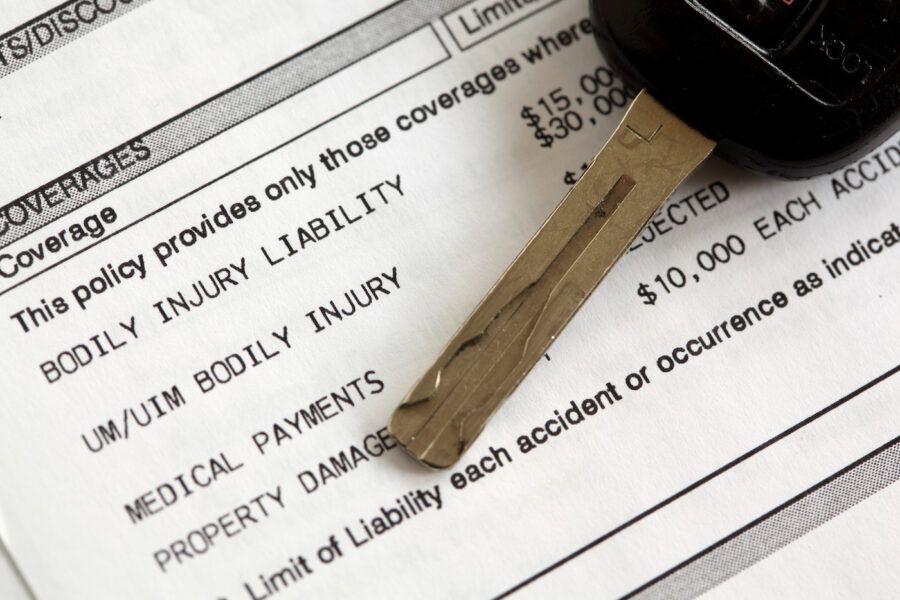In this article:
If you expect your car insurance rates to go up this year, you may want to start preparing. Auto insurance rates are expected to rise in nearly all states in 2023, due in large part to inflation. If you find out your car insurance rate is going up this year, consider comparing other policies, maximizing discounts and adjusting your coverage to make sure you're getting the best deal. Here are four things you can do right now to get prepared.
1. Compare Policies
Rates can vary considerably between carriers, so comparing policies is a solid place to start. You can contact carriers individually for quotes or use an online comparison site to get quotes from multiple carriers at once. You'll need basic information from your current policy to get a fair comparison, including:
- Types of coverage you'll need: Liability, personal injury, uninsured motorist, collision and comprehensive coverage are the basics.
- Coverage limits: Your state may require minimum coverage levels. In California, for example, you must carry minimum liability coverage of $15,000 per person, $30,000 per accident and $5,000 in property damage (known as 15/30/5 coverage) to meet state requirements.
- Deductible: Choose how much you'll pay out of pocket before insurance coverage kicks in. A higher deductible usually means a lower premium, but also means higher costs if you are involved in an accident.
- Discounts: Insurance carriers may offer discounts for anything from safe driving to getting good grades. (More on this below.)
You may also need your car's year, make, model and vehicle identification number (VIN) handy when you're submitting information.
Comparing policies online can save you time and effort. Experian's car insurance comparison tool allows you to upload your current policy (after verifying your identity) and then searches for comparable quotes based on the coverage you currently carry. This saves you the time of wading through the information and inputting it yourself. Receiving multiple quotes can help you gauge what a fair price is and uncover opportunities to save.
2. Maximize Discounts
Insurance companies offer a range of discounts to keep rates down—and keep customers on board. Here's a quick (but not exhaustive) list of possible discounts:
- Safe driver
- Multi-car or multi-policy
- Loyalty
- Low mileage
- New car
- Alternative fuel
- Anti-theft
- Homeowner
- Student or good student
- Affiliation (military or an organization like AARP)
You may also save money by paying your whole premium at once: Monthly payments usually come with interest charges, which won't apply if you pay upfront. Some insurance companies offer discounts for paperless billing or automatic payments as well.
Ask about discounts when you're shopping for carriers, but also be sure to call and check with your current carrier. They may have discounts you aren't aware of—and won't know about unless you ask.
3. Adjust Your Coverage
Finally, you may be able to lower your costs by adjusting your coverage. Pricing out your options may be a good idea, but before you change your policy, make sure you aren't forgoing coverage you actually need. Your state may have coverage requirements, as may your auto lender or lease company if you lease or finance your vehicle.
If you want to lower your costs by changing your coverage, here are the three main actions you can take:
Raise Your Deductible
Agreeing to a higher deductible will usually lower your premium. As long as you can afford the additional out-of-pocket cost in the event of an accident, a higher deductible could allow you to keep your current coverage levels at a lower cost.
Lower Your Coverage Limits
You may be able to lower your rate by reducing the amount of coverage you get, but proceed with caution. Your liability limits should be high enough to protect major assets like your home, and you'll need to meet state and lender requirements.
Review Optional Coverage
Collision and comprehensive coverages—which cover your vehicle in the event of an accident, theft or other damage—may be optional in your state and no longer required if your car is paid off. Two questions to ask first:
- How much would insurance pay if your car was totaled? The insurance payout on an older vehicle with a low market value might be so small that it's not worth maintaining coverage beyond the legally required minimum. You may be better off tucking the premium difference into your savings account.
- Could you replace your car without insurance if anything happened to it? If the answer is no—and your car is essential—keeping your collision and comprehensive coverage may give you peace of mind even if it costs you more.
Options like car rental coverage or coverage for glass breakage are nice to have but may be nonessential if you're looking to cut back.
4. Check Your Credit Score
In many states, insurance companies use credit-based insurance scores to help determine your rate. Although you don't necessarily need good credit to get insurance, having a good credit score may help you secure a better rate. While you're sizing up your insurance situation, you may want to check your credit score: It's free to do anytime on the Experian site.
The Bottom Line
Shopping for car insurance probably isn't your favorite spare-time activity, but comparing options, reviewing discounts and optimizing coverage may help you save money on your next policy—or at least help ensure that you're getting a fair deal as insurance costs go up.

